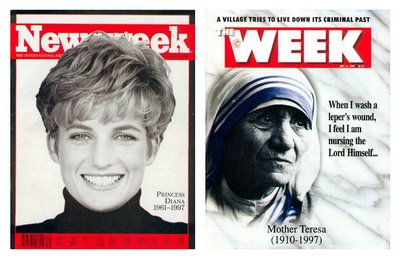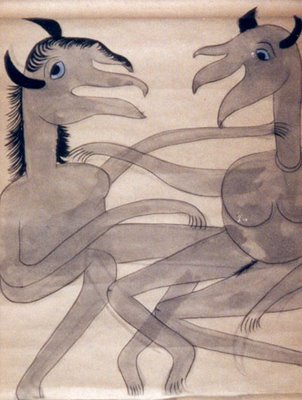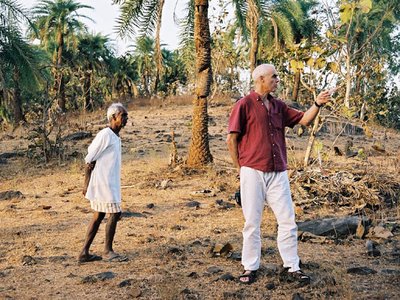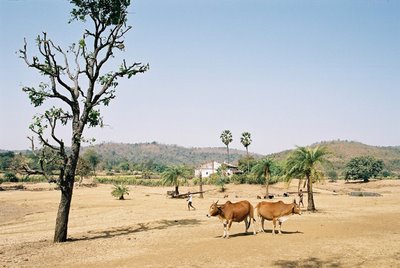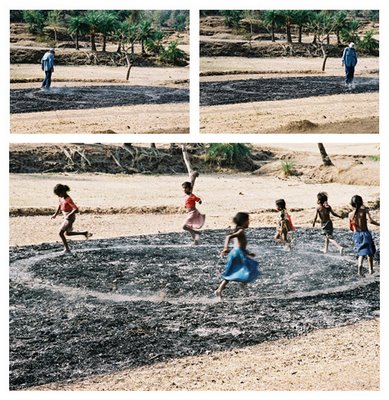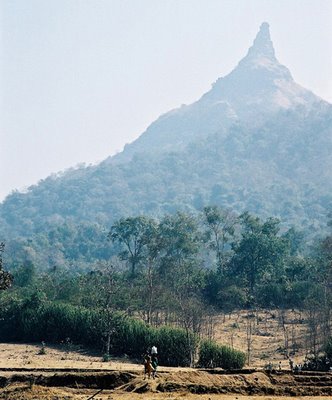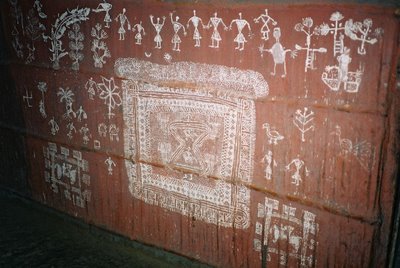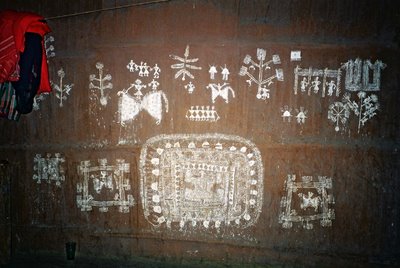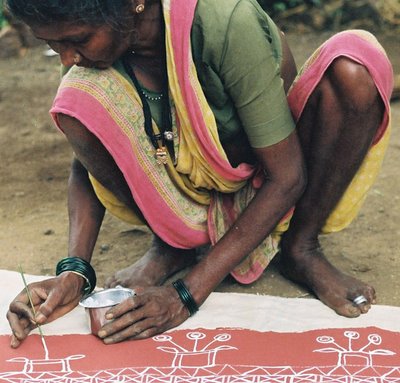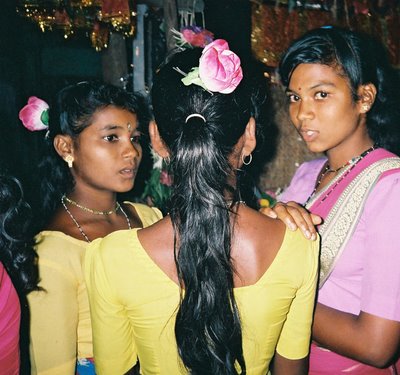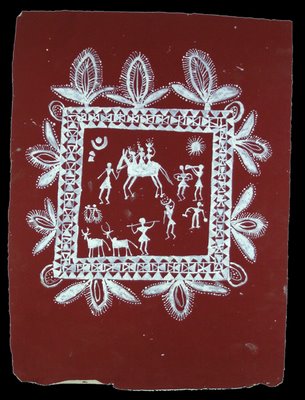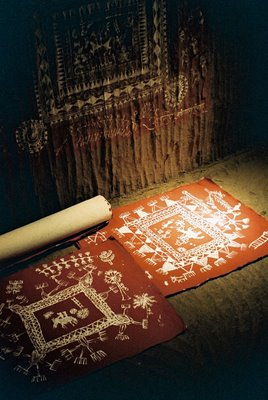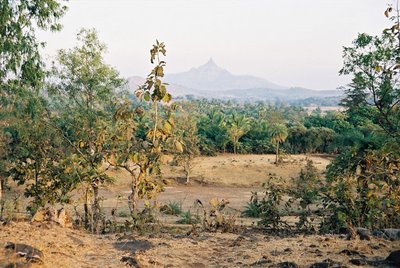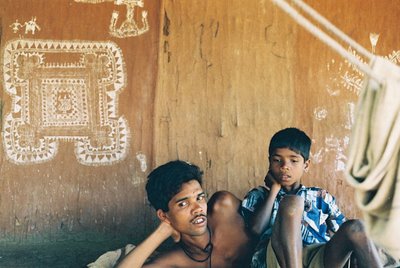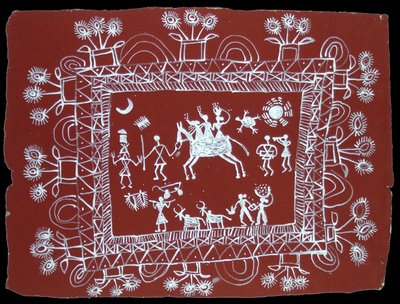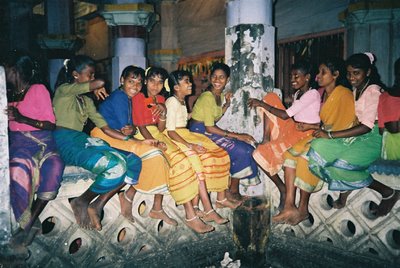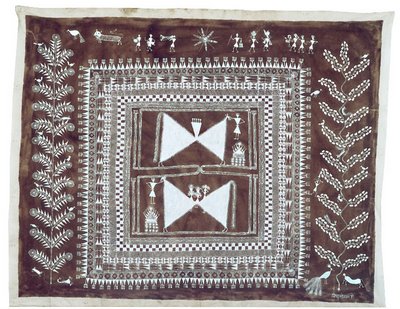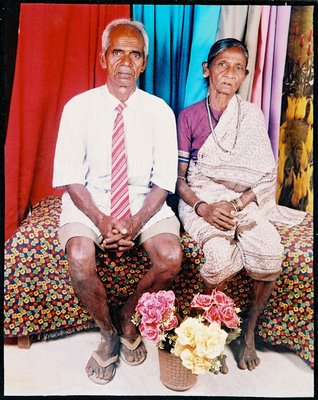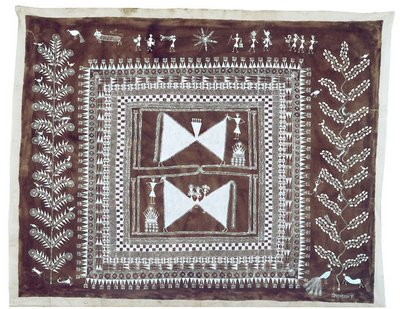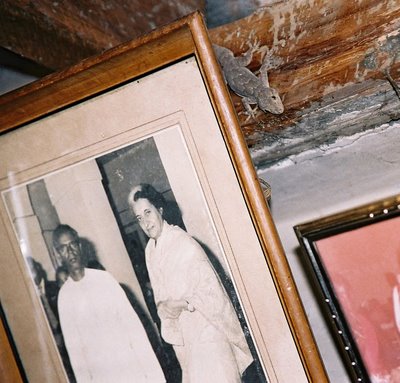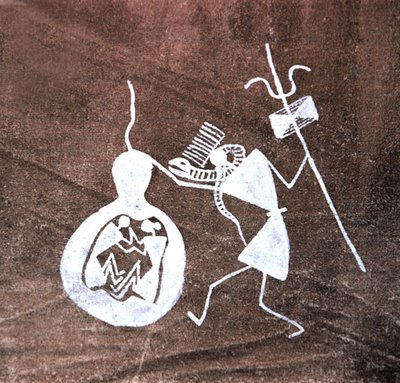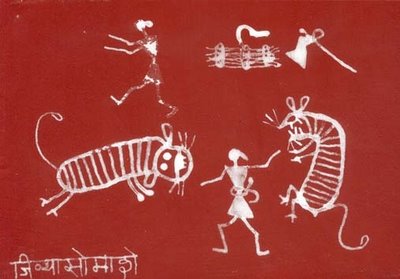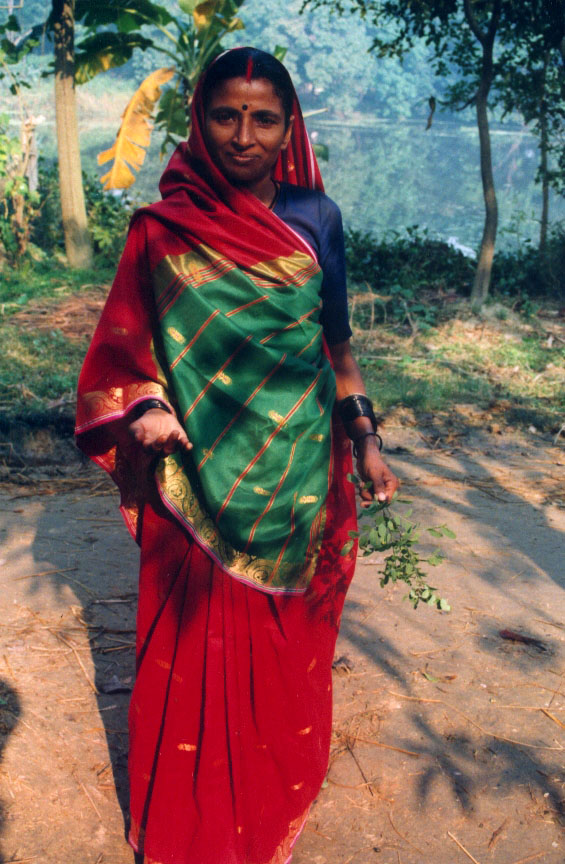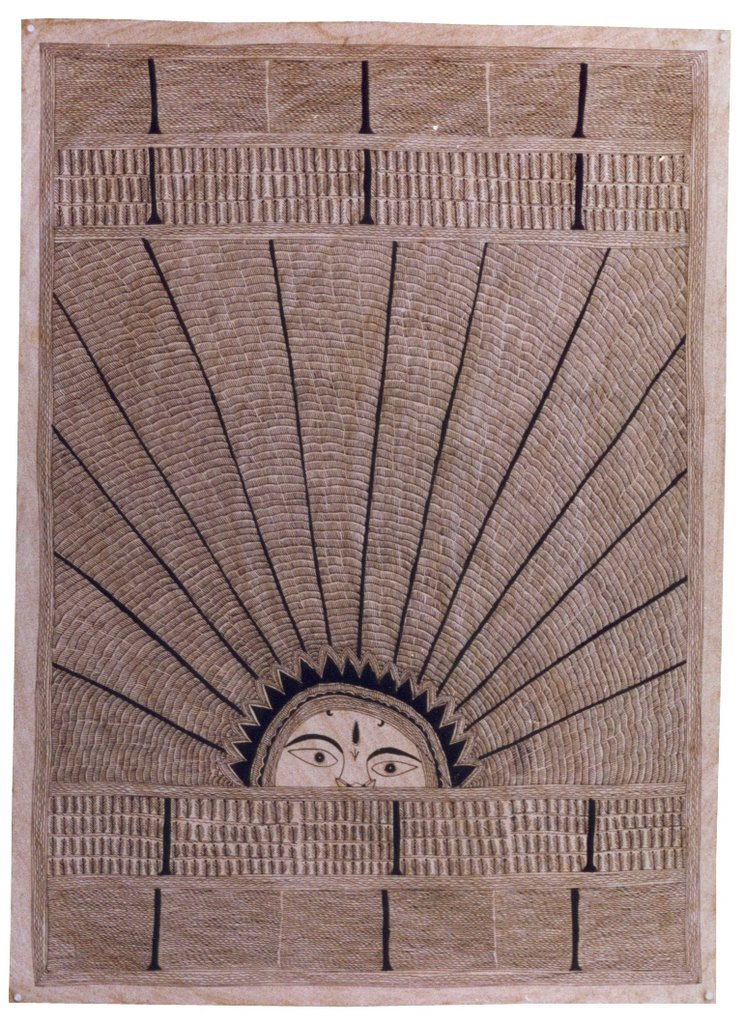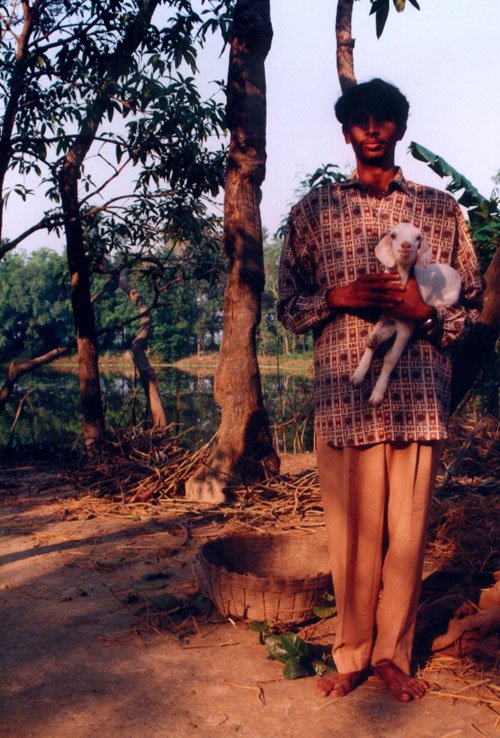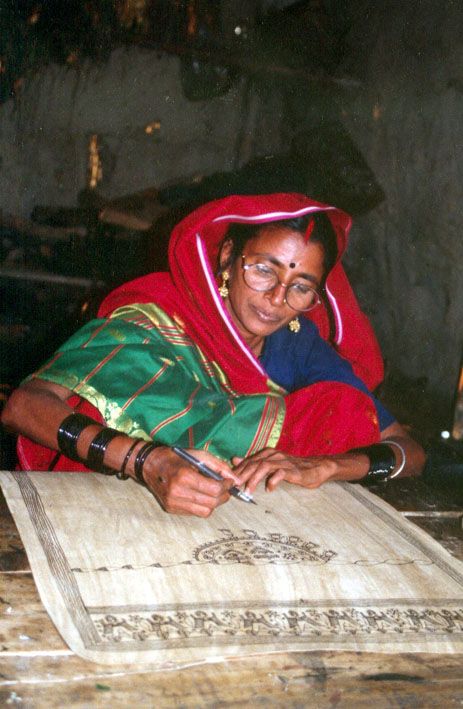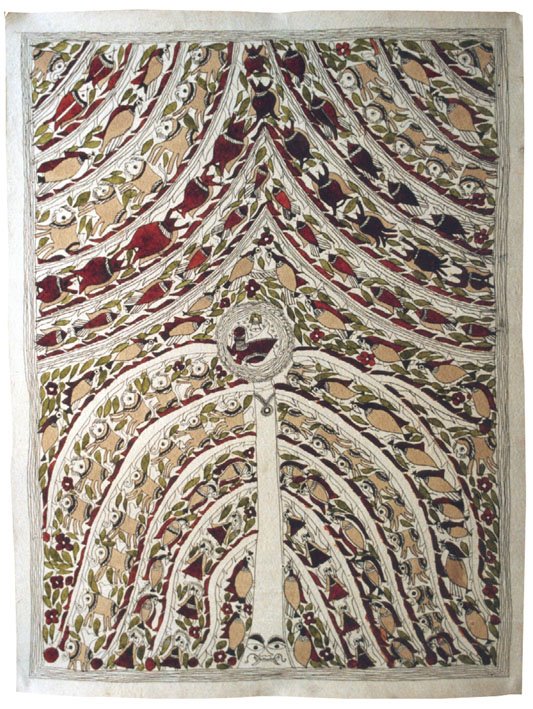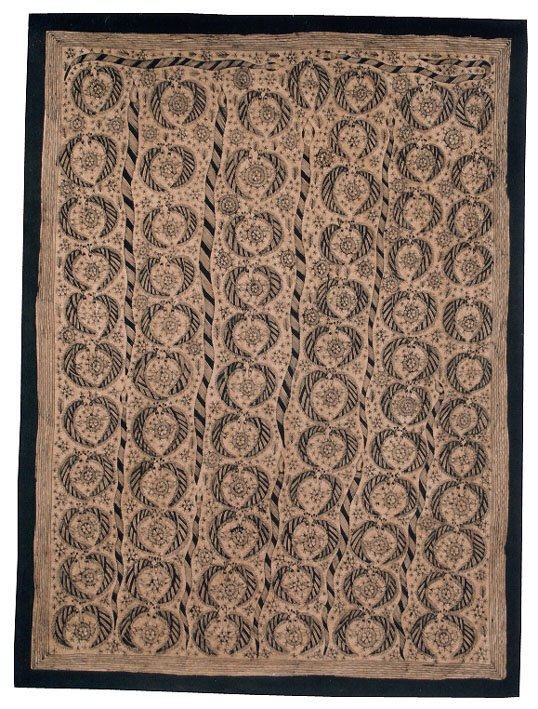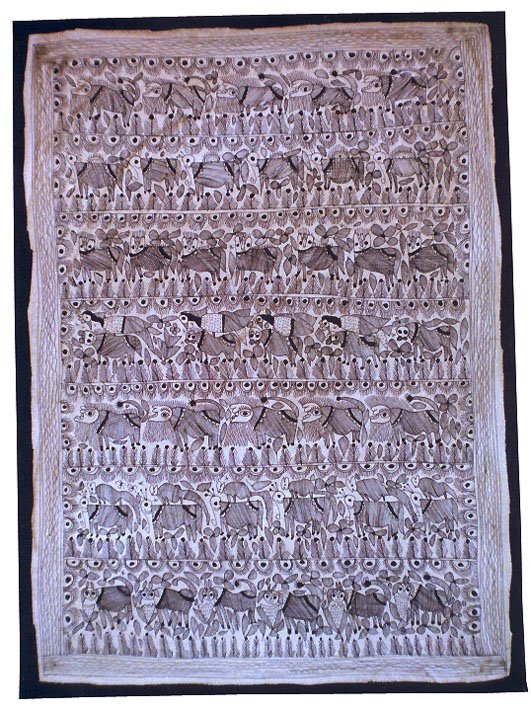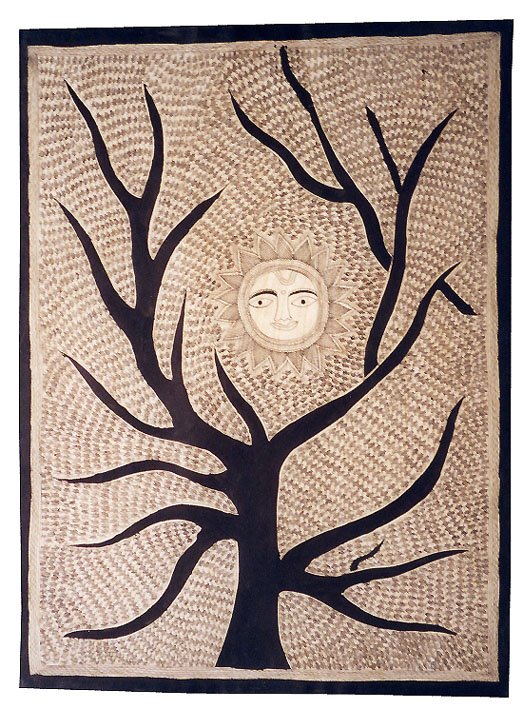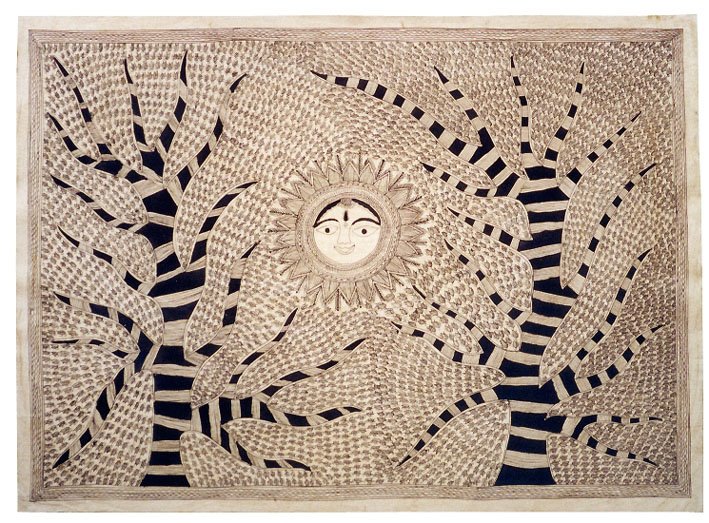Hervé Perdriolle, Jivya Soma Mashe and Richard Long, front the Jivya Soma Mashe house, Thane District, Maharashtra, 2003.
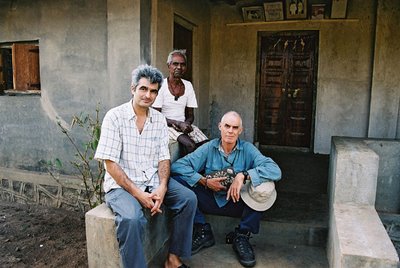
Dialog : Richard Long / Jivya Soma Mashe, Museum Kunst Palast, Düsseldorf, 2003.
Richard Long / Jivya Soma Mashe, Padiglione d’Arte Contemporanea, Milano, 2004.
 Richard Long et Jivya Soma Mashe, Museum Kunst Palast, Düsseldorf, 2003.
Richard Long et Jivya Soma Mashe, Museum Kunst Palast, Düsseldorf, 2003.
Introduction
The idea behind this show came into being when I was living in India, from 1996 to 1999, during the many journeys I made there with the purpose of discovering and studying the art of the Warli tribe in the state of Maharashtra, a mere 90 miles north of Mumbay (Bombay).
On each one of those journeys, I had a chance to take walks lasting many hours, from village to village. For me, the landscapes in their elemental loveliness, but even more so the whole host of details resulting from human activities in nature, imperceptibly conjured up Land Art, and more specifically the work of Richard Long--it, too, in its elemental loveliness.
In the way the Warli spread unassuming bits of wood on the ground, to dry them in the sun; the way they lay out their rice crops; and, just as simply, and among other examples, the way they clean the trodden earth floors of their huts, all this calls to mind, by way of the subtle, sensitive, and elegant attention paid to each of these actions, the fact that their sole deity is the mother goddess, goddess of the earth and fertility, "Palaghata". This cult, if that is what it is, inspired--and still to this day inspires--in them a profound respect for nature. The Warli also express this respect for nature through painting. Through their themes, motifs, and rudimentary style, all Warli paintings--and more particularly the works of Jivya Soma Mashe, the first artist from this tribe to break free from ancestral rituals--seem to be in praise of the Earth, just like every work resulting from Land Art.
This, then, is how the idea behind this exhibition was born, or rather germinated, journey after journey, season after season. The idea which, at the start, was just a feeling, and an ill-defined perception developing during walks taken in the Warli landscape, took on the form of this encounter--a meeting of two artists, two people hailing from undoubtedly quite different cultures, but belonging, above all else, to the same world, and the same Earth, and paying similar respect and consideration towards it.
Hervé Perdriolle, 10 April 2003
Richard Long front the Sacred Mountain, Warli area, Thane District, Maharashtra, 2003.
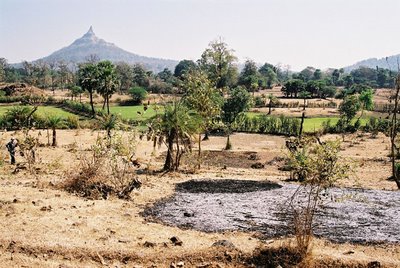
Waiting for G.
Above all else, art has to do with questions and issues. From rock and cave sites to the art of the pyramids, and from sacred art to modern and contemporary art, the history of art is the most gigantic ensemble of issues and questions providing us with clearer information about the history of humankind than any peremptory "answer". The history of art is on a par with the history of humankind--a series of questions to which there is no end. The wealth and relevance of the history of art depend on the quality and diversity of these questions. In this comparison--a dialogue if ever there were--between Richard Long and Jivya Soma Mashe, there is no answer, there are only questions. A set of questions with the most diverse of origins.
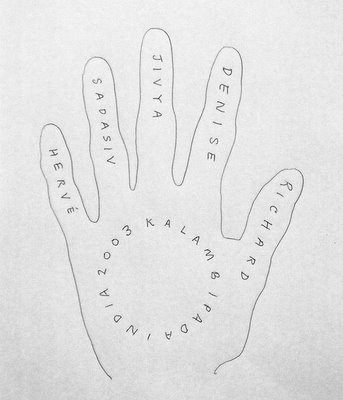 Richard Long, drawing on paper, Warli area, Thane District, Maharashtra, 2003.
Richard Long, drawing on paper, Warli area, Thane District, Maharashtra, 2003.
Dialogue if ever there was? Jivya Soma Mashe comes from the Warli tribe. Like most members of his tribe, and despite his success and all the many journeys he has made both in India and abroad, Jivya Soma Mashe still only speaks Warli, a dialect which has no written form. Because my schooldays were cut short, I got to learn English only when I lived in India from 1996 to 1999. I was not a very diligent student and I only ever really spoke English on my trips into deepest India, that India made up of villages where the use of English is widespread, but reduced to a quite limited vocabulary. Richard Long only speaks a few words of French. Every day, for a week, in the company of Denise Hooker, we visited several villages, and met many Warli, men and women, children and old people, with whom we talked, exchanging a handful of words (each of us in our respective tongues) the way you might exchange offerings and gifts. Languages and dialects, words and sentences akin to objects, without any precise meanings, for anyone. Words and sentences akin to private objects--present, warm, and simple. How many times, when I have got back from my travels, have I had the impression of having had a dialogue with Jivya Soma Mashe, to such a degree have those words exchanged between us like objects been driven by their own life? How many times have a talked to Richard Long in the fond belief that he was understanding what I said through and through? Nothing of the sort. Only his upbringing and courtesy had me thinking that he was always understanding me--something to do with friendly acquiescence. This ploy was no longer possible, though, when complete misunderstandings cropped up. When this happened, we were like two people speaking a different dialect. The two of us--three with Jivya Soma Mashe--and the Warli were like actors in an enigmatic play. By putting on a thumbnail, Jacques Tati-like imitation--and at times his admiration for the French actor pushed him to a certain mimicry--, and in a very British French, Richard Long brought up Samuel Beckett's Waiting for Godot with regard to our odd linguistic behaviour. Beckett, Tati, Long, Mashe, the Warli and their attitudes that were so special, so restrained, discreet and thoughtful, India: the India of the "Adivasi" (the name given by Indians to denote tribal peoples, literally meaning "first inhabitants"), that hot, humid climate, those landscapes made up of a host of small plots of land (whence the origin of the word Warli: "warla" just happens to mean "plot of land"), where sun-scorched land alternates with lush green paddyfields (thanks to ground water generously fed by a vast network of watercourses tumbling down from countless hills), this relief ostensibly revealing, through a serried scattering of stones (like a shower of meteorites), its volcanic origin, the paintings of Jivya Soma Mashe and the works of other Warli painters, the in situ works of Richard Long, the many walks taken in these landscapes, and the particular walk which led us to the top of the sacred mountain (rising up opposite Jivya Soma Mashe's house, whose summit resembles a finger pointing skyward), all these were the props and sets of this dialogueless play, this wordless tale, which was enacted in the open air in the Thane District (State of Maharashtra, India) from 29 January to 6 February 2003.
Hervé Perdriolle, 11 February 2003
Richard Long, work in progress, Warli area, Thane District, Maharashtra, 2003.
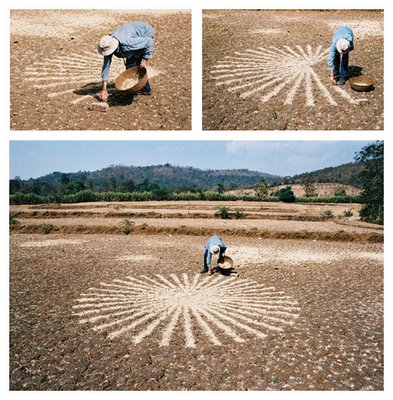
----------------------------------------------------------------------
Copyright textes, photos et collection : Hervé Perdriolle
----------------------------------------------------------------------




